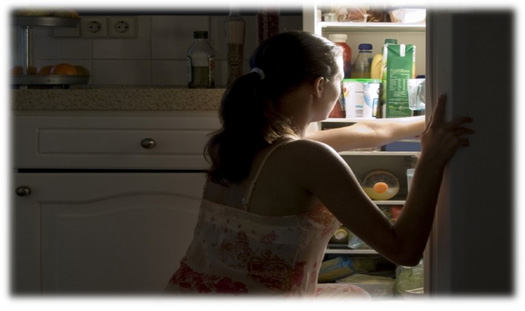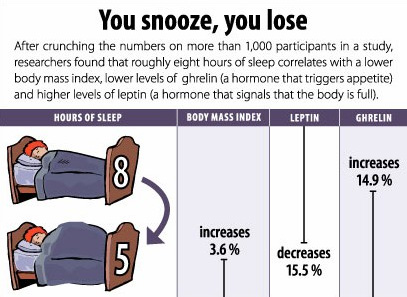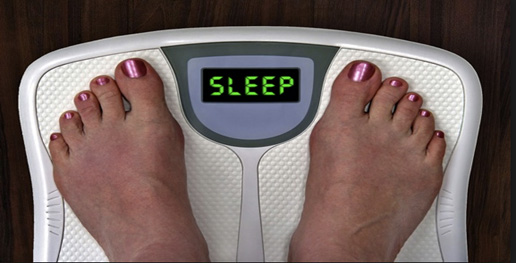- Insomnia Facts
- Causes of Insomnia
- Insomnia Treatment
- Tips for Insomnia
- Medical Chamomile
- Can Sleep Drugs Ruin Your Sleep Cycle?
- Sleep and Immune System
- CBD Oil
- Dream Elements Sleep Spray
- Poor Sleep & Weight Gain
- OTC Medications and Insomnia
- Importance of Melatonin
- What Keeps People Up?
- REM Sleep and Brain Health
- Sleep Hygiene v Prescription Sleep Aids
- Dangers of Sleeping Pill Prescriptions
- Sleep and 5-HTP
Poor Sleep and Weight Gain: Their Surprising Connection
There are a thousand different ways that our daily lives mess with our ability to get a good night's sleep. This eventually leads to sleep deprivation, which is very bad for your health. But did you know it's also bad for your metabolism? Below, we'll explain just how bad a poor night's sleep can be for your waistline.
How Does Poor Quality Sleep Cause Weight Gain?
As you probably know by now, sleep is all about your brain. It restores your brain after a long day of thinking, remembering, memorizing, controlling your physical movements, and regulating unconscious biological activities. One of those activities - your hormone regulation - is very important when it comes to your metabolism and staying in shape.
When you don't get enough sleep, your brain's ability to regulate your hormones goes haywire. You see, unfortunately, your brain has trouble telling the difference between being tired because you aren't getting enough quality sleep, and when you're tired due to a lack of calories. In such a scenario, your regular brain transforms into a bit of a jerk brain and assumes the problem is a lack of calories, and triggers hunger cravings for fattening foods to fix the problem as quickly as possible.

It doesn't stop with unhealthy food choices, either. Sleep deprivation and unhealthy eating habits keep triggering your body to release more of these unhealthy hormones, which leads to greater sleep disturbances and more unhealthy eating. It essentially creates a snowball effect, leaving you chronically tired and ingraining poor health habits into your brain. These habits can extend into other aspects of your life, such as choosing not to exercise due to fatigue or poor work performance thanks to a lack of energy and motivation.
We already know that lack of exercise, poor eating habits, and certain prescription medications can lead to weight gain. Believe it or not, this weight gain can also add to a decline in your sleep quality. Weight gain around the throat can put pressure on your airway at night, especially if you sleep in the wrong position. In advanced stages, this leads to sleep apnea, a condition where your body is briefly unable to breathe while asleep. If left untreated, this oxygen deprivation can lead to cardiovascular and neurological health problems. CPAP machines have been invented to help treat the problem, but are often uncomfortable to wear and make a lot of noise, further impeding your ability to sleep.
Sleep Deprivation and Hormonal Imbalance
Scientists don't completely understand why the human brain suddenly craves the least healthy options in order to solve this energy deficit. But many believe that it has to do with the way your brain regulates certain hormones after a poor night's sleep.
For starters, there's an imbalance in when and how much ghrelin and leptin your body releases. Leptin is the "I'm full" hormone that your body releases when you have a full stomach, or after you consume enough calories to sufficiently fuel your body. Ghrelin is the Ying to leptin's Yang; it gets released when your body is hungry, or when you're low on energy. As we said earlier, it doesn't matter whether this lethargy comes from a calorie deficit or a poor night's sleep. An extra ghrelin release (and suppression of leptin) is the result.
You'll also notice a boost in cortisol when you don't get enough good sleep. Cortisol is notoriously known as the "stress hormone", even though it does serve several important purposes. Unfortunately, too much cortisol - or cortisol released in the evening, when you're trying to sleep - puts excess stress on the body. And what are people more likely to do when they feel too much stress? Yup, you guessed it: they reach for that donut, chocolate ice cream, or fast food in order to trigger pleasant feelings in their brain. This, in turn, has an expanding effect on your waistline.
You'll also experience an orexin spike in your body when you don't get enough sleep. It's a hormone that triggers arousal, but not in the way you might think. When there's too much ghrelin in your system and you feel hungry, orexin triggers you to feel more awake so that you'll feel motivated to find food. Another bad thing about excess orexin levels is that it's harder for your body to release leptin, even after you've eaten enough food. This triggers overeating, leading to an excess of calorie consumption and extra fat storage on your person.

Improving Your Chances for Better Sleep
All of this information may feel like hopeless doom and gloom, but there is a light at the end of the tunnel. It involves practicing good sleep hygiene, and it's not as difficult as it may sound. You can make small changes starting tonight, which may include:
- Avoiding electronic devices, such as TVs and computer screens, about an hour before bed
- Practicing meditation techniques that help you relax and take your mind off the day's problems
- Turning down the temperature at night, which helps your brain release more melatonin
- Avoiding sleep medications (whether prescription or over-the-counter); they may make you feel sleepy, but also degrade sleep quality
- Eliminate all noisy distractions from your bedroom, including animals, that may wake you in the middle of the night
- Use your bedroom for sleep and lovemaking only
If these don't start helping you sleep better at night, or if you think you have to take something before bed, stick to natural, safe herbal remedies. There are sleep supplements out there which combine botanical ingredients that have been used for hundreds of years in order to help people relax. The more relaxed you are in the evening, the easier it will be to fall asleep quickly and stay asleep throughout the night. Such supplements can also improve your sleep quality by helping you sleep more deeply, and for longer. You'll feel refreshed, energetic, and protect yourself from the weight gain that comes with poor sleep quality.



